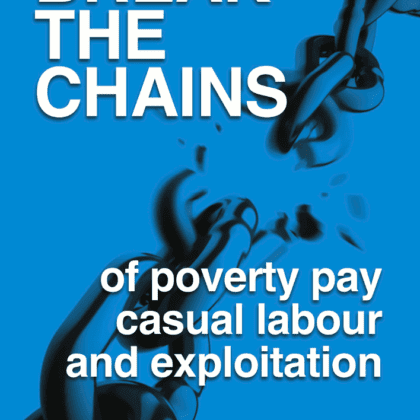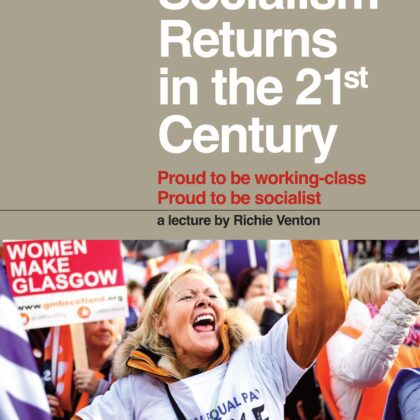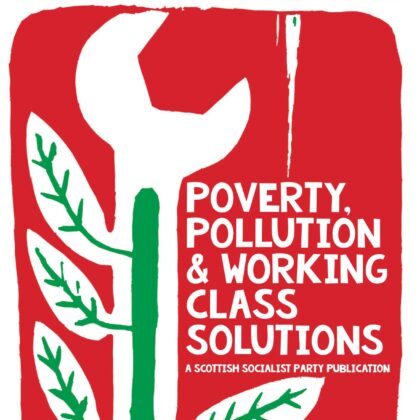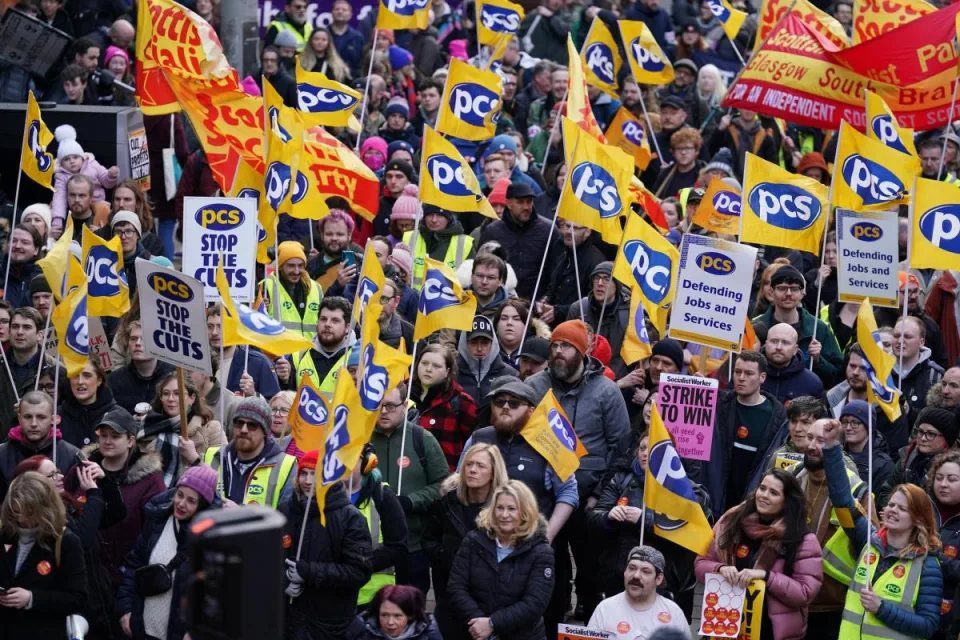
“No doubt they will start saying our strike is stopping people from getting a passport, but we are striking because workers are being stopped from getting food. We need to show the government we are not going away until they put money on the table, for a wage people can live on.”
Andy Bain, PCS branch secretary
SSP National Trade Union Organiser Richie Venton spoke with PCS union members taking strike action.
As part of their escalating strike action, the PCS union have called out members in all eight Passports Offices for 5 weeks – supported by a levy of all PCS members.
The timing is designed to hit hard, at a time of high demand for passports, to try and knock some sense into the belligerent heads of a Tory government hellbent on crushing trade unions, slashing pay and conditions, and shackling workers into a state of slavery with their increasingly vicious anti-union laws.
Passports workers in Glasgow, London, Belfast, Liverpool, Durham, Peterborough, Southport, and Newport are staging this fightback against poverty pay. By all accounts, Glasgow is a stronghold of the action, after massive growth in union membership and levels of organisation, with over 80% of the workforce in the union, and a lively team of PCS union reps.
They have countered cynical attempts by management to undermine the impact of the strike with inducements to workers to work overtime the weekend prior to the strike. As a result of union explanation and persuasion, not a single member volunteered for overtime! Additionally, a mere 5 people went into work, compared to a union membership of over 360, forcing management to abandon those particular operations in the Glasgow office.
All the workers at the picket lines emphasise to me that they would much prefer meaningful progress through negotiations, but in the absence of that, see no alternative to striking, and making the strike as effective as possible, to help achieve a rapid victory.
As PCS branch secretary Andy Bain told me:
“We have members really struggling, relying on foodbanks, relying on in-work benefits, spending over 50% of their wages just on housing costs alone, so it’s not sustainable for us. The support from the public has been amazing; everyone seems to be realising everyone needs a wage they can live on, this year especially.
“No doubt they will start saying our strike is stopping people from getting a passport, but we are striking because workers are being stopped from getting food. We need to show the government we are not going away until they put money on the table, for a wage people can live on.”
“this strike is the result of a long-term struggle and long-term dispute over pay and conditions; for fairer wages. And the government have the resources and the ability to put a stop to this at any time they want. They’re choosing not to at the moment. It’s an active choice that’s being made by the government.”
Striking PCS member
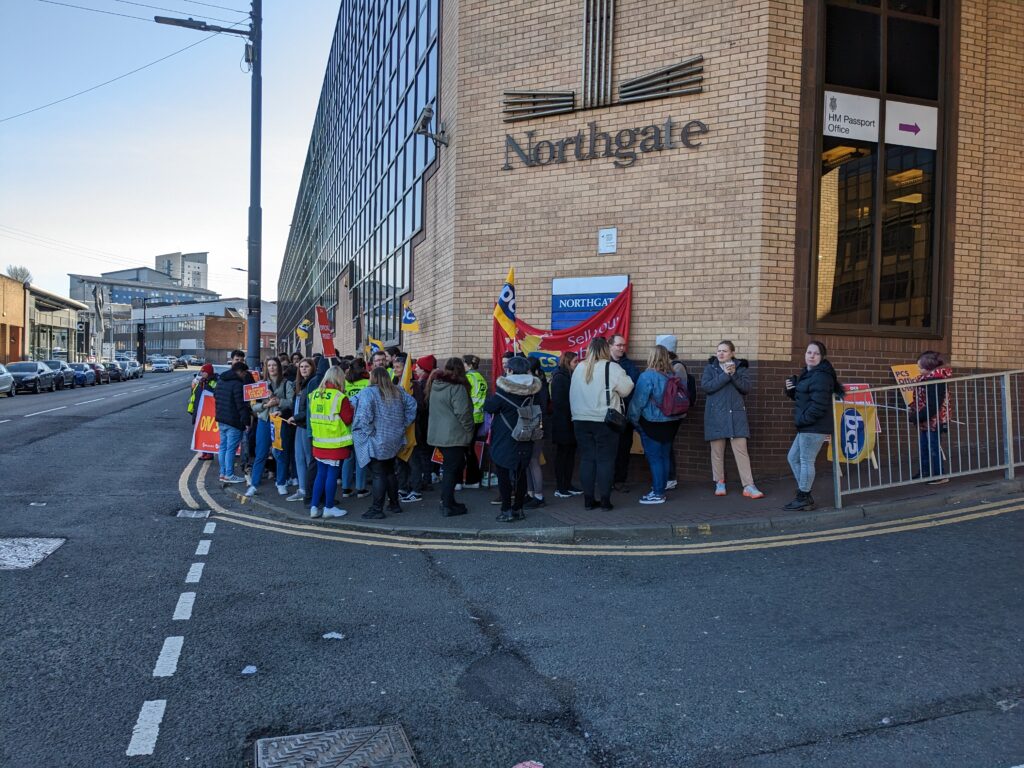
On the day the strike started, I spoke to a young PCS member about why she is taking this action, the first strike action in her life.
Why is your workforce on strike?
PCS member: “We’re striking today and for the next five weeks primarily over an ongoing dispute surrounding pay. We’re asking for a 10% pay rise, improved working conditions, job security, pensions justice, and no cuts to our redundancy terms.”
What kind of pay levels are there in the workforce? What examples could you give?
“Myself and other members, as a PO3 grade – which is the grade that’s being taken out on strike – we’re on £22,400 a year.
“Which I think, when you strip it back to its hourly rate, is barely more than the minimum wage. I know the grades that are lower than ours have had their pay risen twice in the last year, purely to align with the rise of legal minimum wage level.
“So we’re on £22,400 as a PO3 grade. I know that in other civil service offices that the equivalent of our grade is being paid a lot more. The work we do in a different office would be seen as a higher level of responsibility. We would be up a grade and we’d be paid accordingly.
“So specifically in HMPO, our grade and the work that we do we think is significantly undercut and underpaid. Hence why we’re asking for a 10% raise, considering that inflation is 11%. We’re just trying to keep in line with living costs.”
And is the demand for a £15-an-hour minimum wage part of it as well?
“Yes, which I know that PCS just won in Scottish parliament. Which just shows that union work, and striking, does work.”
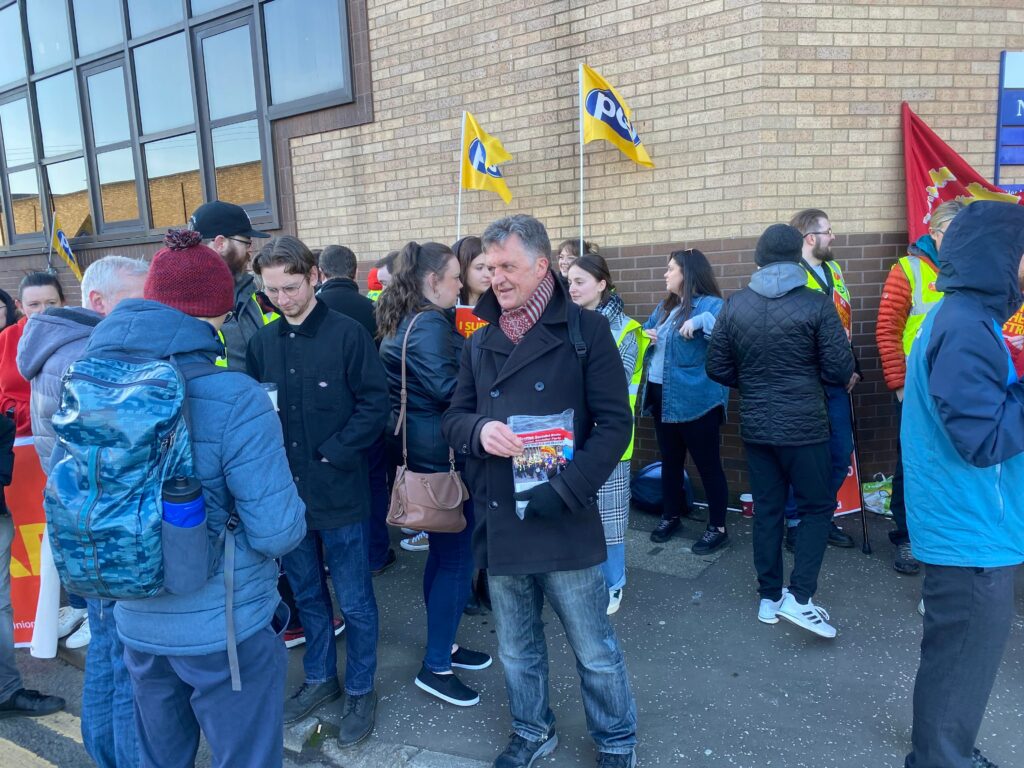
“This pay increase needs to happen. I have colleagues who are using food banks; I have colleagues who are on child benefits; I have colleagues who are adults in their 40s, who still have to borrow money at the end of the month“
Striking PCS member
And what has the response of the union membership, the workforce, been to the strike?
“It’s been fantastic. We’ve had people who have historically not been members join up to support the strike.
“I don’t think I’ve spoken to any members who haven’t been supporting it. I think everyone is in agreement over the necessity of the strikes. Frankly I think the things that we’re asking for, we can’t go on much longer without. And I think across the board, unanimously, it’s been a great success in terms of support and solidarity from all members. Even the members who were not induced to strike are showing real, real support for it.”
And there’s a good-sized picket, isn’t there?
“Yes. I think this is the biggest picket that we’ve had so far. Obviously, we’ve had individual strike days before and I think this is the biggest turnout that I’ve seen. It’s been great to see so many people who don’t usually attend pickets, all come together, to get out early on a Monday, to come and support the picket line.”
What would your appeal to other people be, to other trade unionists and the general public?
“I think this strike is the result of a long-term struggle and long-term dispute over pay and conditions; for fairer wages. And the government have the resources and the ability to put a stop to this at any time they want. They’re choosing not to at the moment. It’s an active choice that’s being made by the government.
“And I would just say, support the strikes, because the work that we do is providing an essential service, and it’s been just like completely rinsed and side-tracked by the government and it’s not sustainable, it’s not a sustainable salary; the working conditions are not sustainable.
“This pay increase needs to happen. I have colleagues who are using food banks; I have colleagues who are on child benefits; I have colleagues who are adults in their 40s, who still have to borrow money at the end of the month from their parents. It’s not a sustainable salary bracket at all.”


